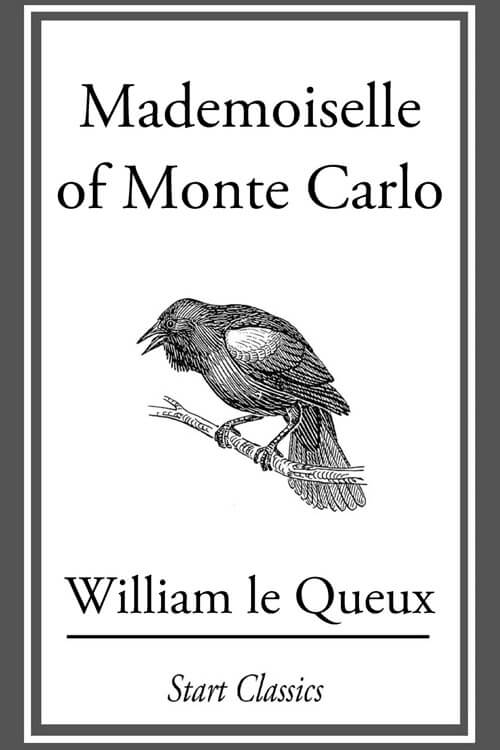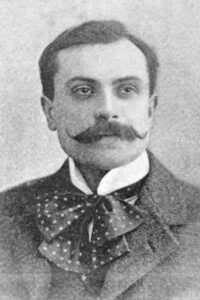
Mademoiselle of Monte Carlo
Around each table were crowds four or five deep behind those fortunate enough to obtain seats, all eager and anxious to try their fortune upon the rouge or noir, or one of the thirty-six numbers, the columns, or the transversals. There was but little chatter. The hundreds of well-dressed idlers escaping the winter were too intent on the game. But above the click of the plaques, blue and red of different sizes, as they were raked into the bank by the croupiers, and the clatter of counters as the lucky players were paid with deft hands, there rose ever and anon:
“Messieurs! Faites vos jeux!”
Here, English duchesses rubbed shoulders with the most notorious women in Europe, and men who, at home in England, were good churchmen and exemplary fathers of families laughed merrily with the most gorgeously attired cocottes from Paris, the stars of the film world, or the variety stage. The world and the half-world were on equal footing upon that wide polished floor of the splendidly decorated Rooms, with their beautiful mural paintings and heavy gilt ornamentation.
Into that stifling atmosphere—for the Administration of the Bains de Mer of Monaco seemed as afraid of fresh air as of purity propaganda—the glorious afternoon sunlight struggled through the curtained windows. At the same time, over each table, in addition to the electric light, oil lamps shaded green with a billiard-table effect cast a dull, ghastly illumination upon the eager countenances of the players. Most of those who go to Monte Carlo wonder at the old-fashioned mode of lighting. It is, however, a consequence of an attempted raid upon the tables one night when some adventurers cut the electric light main and, in the darkness, grabbed all they could get from the bank.
The two English visitors, both men of refinement and culture, who had watched the tall, very handsome woman in black, to whom the older man had referred as Mademoiselle of Monte Carlo, wandered through the trente-et-quarante rooms, where all was silence, and counters, representing gold, were being staked with a maximum of twelve thousand francs.
Read or download Book
William Le Queux
William Tufnell Le Queux (2 July 1864 – 13 October 1927) was an Anglo-French journalist and writer.
Biography.
He was also a diplomat (honorary consul for San Marino), a traveller (in Europe, the Balkans, and North Africa), a flying buff who officiated at the first British air meeting at Doncaster in 1909, and a wireless pioneer who broadcast music from his station long before radio was generally available; his claims regarding his abilities and exploits, however, were usually exaggerated. His best-known works are the anti-French and anti-Russian invasion fantasy The Great War in England in 1897 (1894) and the anti-German invasion fantasy The Invasion of 1910 (1906), the latter becoming a bestseller.
Early life
Le Queux was born in London. His father was a French draper’s assistant, and his mother was English. He was educated in Europe and studied art under Ignazio (or Ignace) Spiridon in Paris. He carried out a foot tour of Europe as a young man before supporting himself by writing for French newspapers. In the late 1880s, he returned to London, where he edited the magazines Gossip and Piccadilly before joining the staff of The Globe as a parliamentary reporter in 1891. In 1893, he abandoned journalism to concentrate on writing and travelling. His partial French ancestry did not prevent him from depicting France and the French as the villains in works of the 1890s, though later he assigned this role to Germany.
Career
Le Queux mainly wrote in the genres of Romance, mystery, thriller, and espionage, particularly in the years leading up to World War I, when his partnership with British publishing magnate Lord Northcliffe led to the serialized publication and intensive publicizing (including actors dressed as German soldiers walking along Regent Street) of pulp-fiction spy stories and invasion literature such as The Invasion of 1910, The Poisoned Bullet, and Spies of the Kaiser. These works were a common phenomenon in pre-World War I Europe, involving fictionalized stories of possible invasion or infiltration by foreign powers; Le Queux’s speciality, much appreciated by Northcliffe, was the German invasion of Britain. He was also the original editor of Lord Northcliffe’s War of the Nations.






